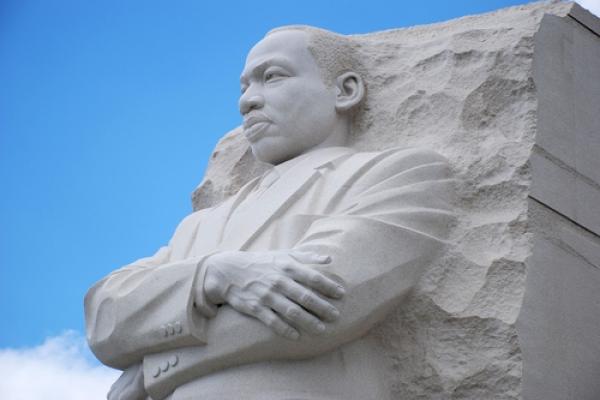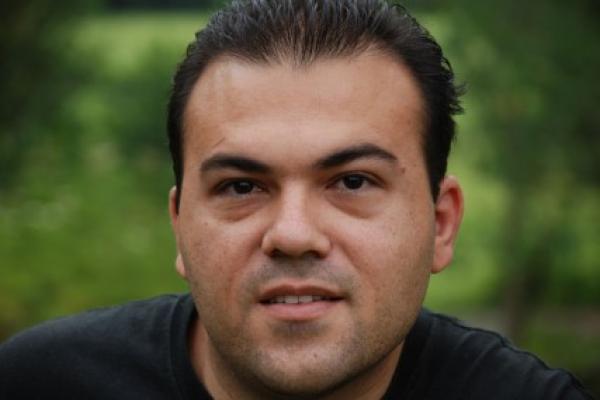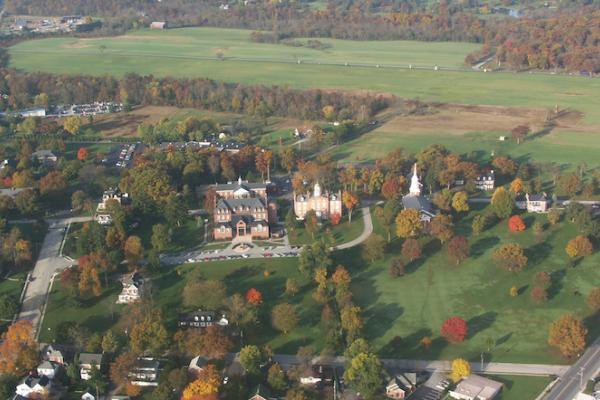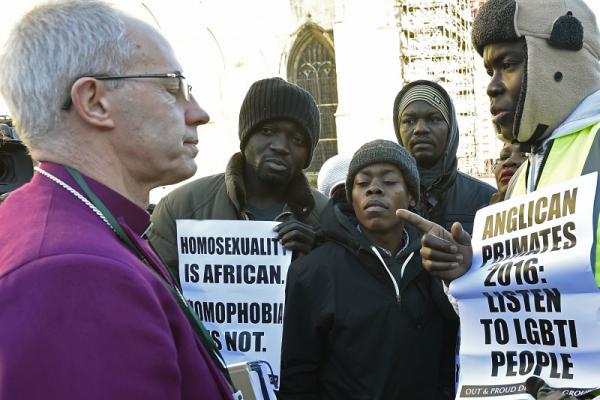If we see our interests and needs as more important than the interests and needs of others, then we’ll never have peace in our personal lives or in our world. Peace requires a recognition that we’re all equally beloved children of the same loving God.
It involves recognizing that we all matter equally — and then doing some introspection to see if we’re living up to it in our various relationships.
As the #BlackLivesMatter movement reminds us, the civil rights struggle is far from over. The blood, sweat, and tears of our 20th-century civil rights heroes must be followed up by the clear-eyed resolve of a new generation. Ideally, celebrations like Martin Luther King Day should help to sustain this resolve, energizing us for the hard work ahead.
That being said, I suspect that King would not be too thrilled about MLK Day.
Saeed Abedini, a pastor jailed in Iran since 2012 for allegedly trying to set up house churches, was one of four Iranian-Americans freed on Saturday in a prisoner deal with the U.S. linked to the nuclear deal between Iran and six world powers.
Two Lutheran seminaries in Pennsylvania are planning to close and launch together a new school of theology in 2017 with hopes of slashing costs and reversing years of declining enrollments. The decision came this week from the governing boards of Lutheran Theological Seminary at Gettysburg and Lutheran Theological Seminary at Philadelphia. The plan will cut the number of seminaries affiliated with the Evangelical Lutheran Church in America from eight to seven.
As a black, same-gender loving woman, who is a pastor, Bishop and activist, I can solidly say that my wife, children, grandchildren, and community have stronger allies, greater opportunities, and more protections than we have ever had. This is in many ways attributable to a growing number of black clergy who are no longer willing to stand idly by and watch large segments of the communities they were called to serve alienated, stripped of rights, physically abused, and treated unjustly. They have taken the costly stand against the notion that LGBTQ people are unworthy of God’s love and full acceptance within the church.
No guns, no gun deaths. That was the mantra ingrained in me from a young age. It is the line that runs through my head when I read reports stating that around 3,000 of the more than 30,000 gun-related deaths in the U.S. each year are of children. In 2015, 265 minors were responsible for accidental gun shootings and 83 of these children killed someone, often because they found a loaded gun in the house and were curious.
Often I wonder, what is it about me that puts me at the table? I love my x chromosomes and femininity; being a woman is an amazing thing! But in these circles, they seem to come with a cost. No, I’ve not been barred from sitting at the leadership table, but am I only here because I don’t have two other things I longed for – a husband/partner to share life with and children to love and care for and call my own.
My earliest encounter with law enforcement was when Kern County sheriff’s deputies pulled my cousin and me over in the fall of 1993. They pulled us out of vehicle in middle of nowhere and pushed my face in the gravel. I could taste the bits of rock pushing on my lips and teeth as the deputy asked, “Where is the knife?” And for the third time I assured him that I didn’t have a knife. We were eventually released that night and drove home, but that would not be my last encounter with the sheriff’s department.
A few months before Robert W. Finn became bishop of the Catholic Diocese of Kansas City-St. Joseph, I interviewed him for The Kansas City Star about the challenges he might face when he replaced the much-loved Bishop Raymond Boland. Of course, neither Finn nor I had any way of knowing that a decade-plus later he would resign in disgrace, having been convicted of the misdemeanor crime of failing to notify law enforcement authorities about a suspected child-abusing priest in the diocese — a priest who now spends his time in prison.
The Anglican Communion’s worldwide leaders, finishing up four days of heated discussions, sought to project a sense of unity despite a move to exclude the Episcopal Church from key policy decisions over the American province’s acceptance of same-sex marriage. The Archbishop of Canterbury, Justin Welby, overall leader of the global body, stressed at a news conference on Jan. 15 that the church had chosen to remain together, albeit effectively as a house divided.









